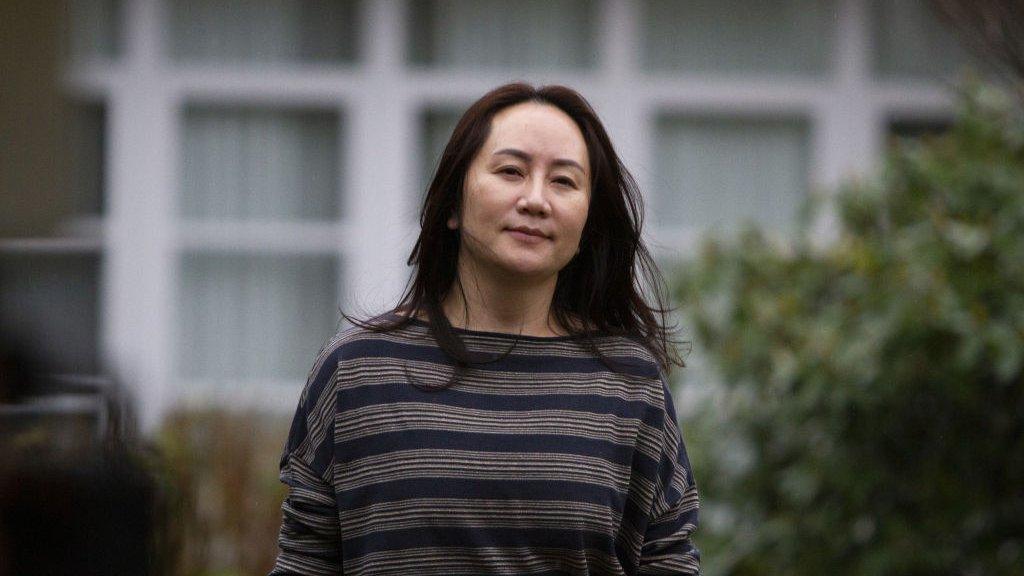Huawei turns to pig farming as smartphone sales fall
- Published
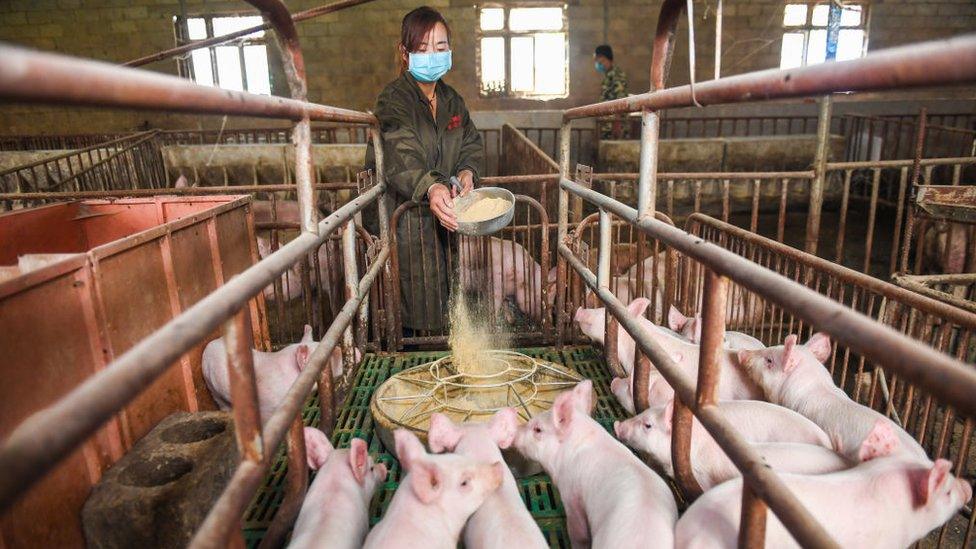
Huawei is turning to technology for pig farmers as it deals with tough sanctions on its smartphones.
The Chinese telecoms giant was stopped from accessing vital components after the Trump administration labelled it a threat to US national security.
In response to struggling smartphone sales, Huawei is looking at other sources of revenue for its technology.
Along with Artificial Intelligence (AI) tech for pig farmers, Huawei is also working with the coal mining industry.
Former US President Donald Trump claimed Huawei can share customer data with the Chinese government, allegations it has repeatedly denied.
As a result, the world's largest telecoms equipment maker has been limited to making 4G models as it lacks US government permission to import components for 5G models.
Huawei's smartphone sales plunged 42% in the last quarter of 2020 as it struggled with a limited supply of microchips due to the sanctions.
Huawei has also been locked out of the development of 5G in a number of countries, including the UK, amid fears over national security.
Reports have suggested that it will reduce its manufacturing of smartphones by up to 60% this year, although it said it can't confirm this figure.
"The issue here is not like there's any problems with our quality or experiences of the Huawei products. It's not a level playing field for Huawei as Huawei is caught in between the geopolitical tensions," a company spokesman told the BBC.
And so, Huawei appears to be looking for other sources of revenue - moving into cloud computing services, smart vehicles and wearable devices. It even has plans for a smart car.
But it also has its eye on a few more traditional industries.
Pig farming
China has the world's biggest pig farming industry and is home to half the world's live hogs.
Technology is helping to modernise pig farms with AI being introduced to detect diseases and track pigs.
Facial recognition technology can identify individual pigs, while other technology monitors their weight, diet and exercise.
Huawei's UK director of communications Ed Brewster says the UK's decision is about trade.
Huawei has already been developing facial recognition tech and faced criticism last month for a system that identifies people who appear to be of Uighur origin among images of pedestrians.
Other Chinese tech giants, including JD.com and Alibaba, are already working with pig farmers in China to bring new technologies.
"The pig farming is yet another example of how we try to revitalise some traditional industries with ICT (Information and Communications Technology) technologies to create more value for the industries in the 5G era," the Huawei spokesman added.
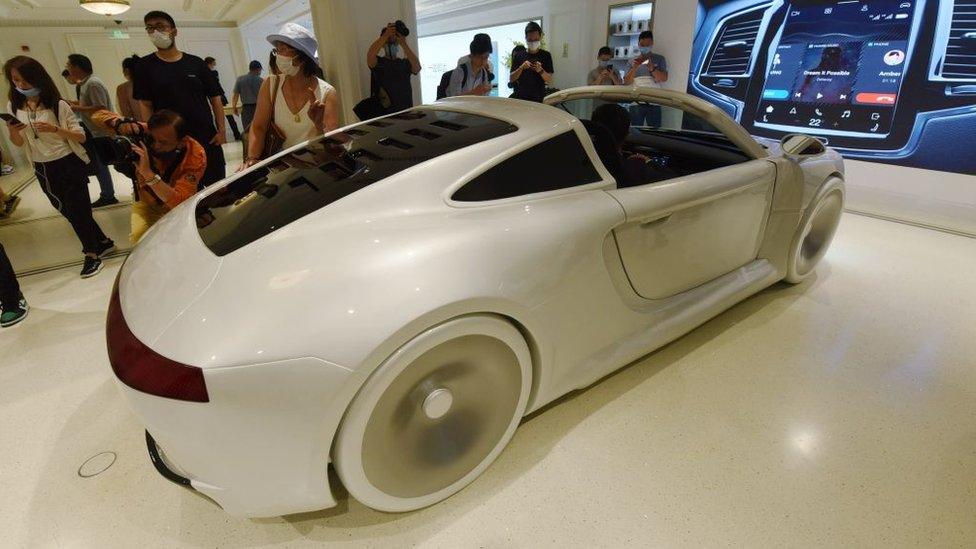
Mining coal and data
Earlier this month, Huawei founder and chief executive Ren Zhengfei announced a mining innovation lab in northern China's Shanxi Province.
He wants to develop technology for coal mines that will lead to "fewer workers, greater safety, and higher efficiency" and enable coal miners to "wear suits and ties" at work.
During a round-table meeting at the event, Mr Ren said the company was also expanding into consumer products such as televisions, computers and tablets.
"We can still survive even without relying on phone sales," Mr Ren said, adding that it is very unlikely the US will remove Huawei from a blacklist that bars companies from working with the Chinese tech firm.
Related topics
- Published10 February 2021
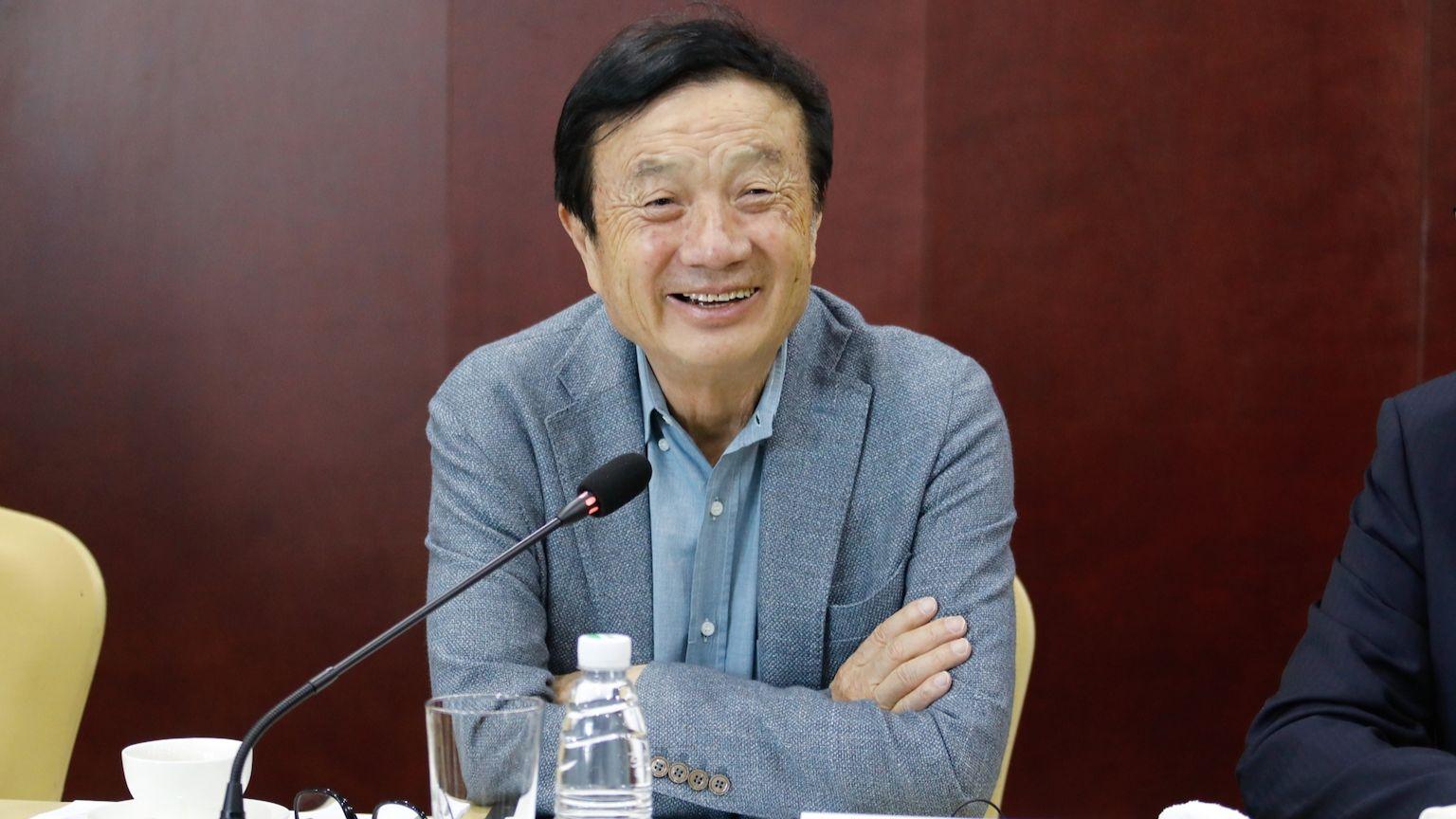
- Published12 February 2021
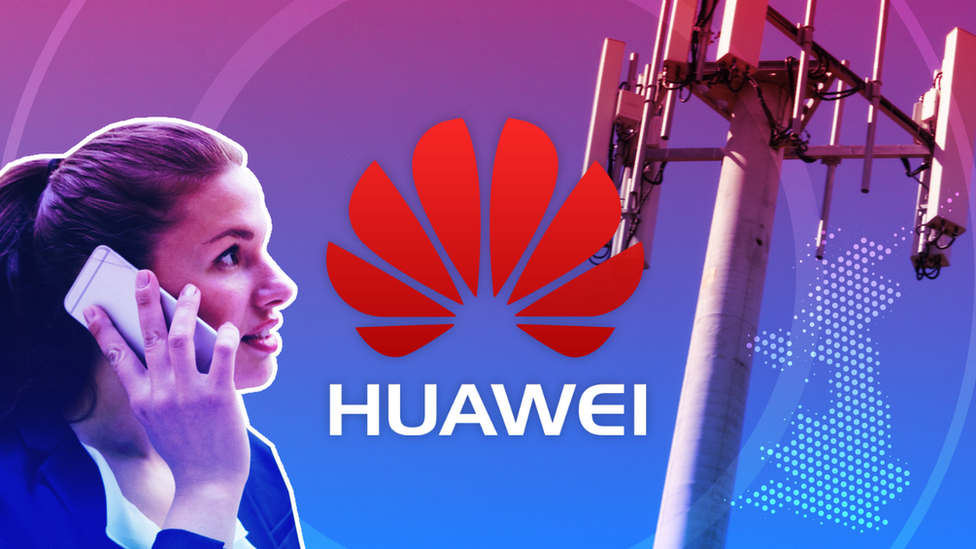
- Published14 January 2021
